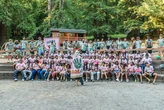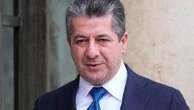Hello and welcome to Modern CEO! I’m Stephanie Mehta, CEO and chief content officer of Mansueto Ventures. Each week this newsletter explores inclusive approaches to leadership drawn from conversations with executives and entrepreneurs, and from the pages of Inc. and Fast Company. If you’re reading this newsletter on the website, you can sign up to get it yourself every Monday morning.
For the first Modern CEO newsletter, published in January 2023, I contacted executive recruiter Jana Rich to talk about the importance of creative leaders in business—a theme I’ve explored a few times as generative artificial intelligence (gen AI) and other technologies threaten to commoditize many aspects of work. So, when Rich recently announced that she has stepped away as planned from Rich Talent Group, the firm she founded in 2014 after 12 years at Russell Reynolds Associates, I asked her to reflect on her experiences during the last decade. Edited excerpts follow:
Why did you start Rich Talent Group?
It was for two primary reasons. One was I really loved—and still love—working with founders who are to some degree building their first leadership team, their first board. And I didn’t feel like that was particularly well aligned with the big firms. I don’t think that’s really where they spend their time and energy. And then, equally as important to me, was I wanted to do everything I could to find, identify, and promote women, people of color, and LGBTQ+ folks. I also felt, and still do feel, that is not a strong suit of the big firms.
What were you seeing in Silicon Valley at the time?
When we opened the doors in April of 2014, on day one, we had [as clients]—and I’m going to use the names that they were called back then versus what they’re called today—Facebook, Uber, Square, Airbnb, Pinterest, Dropbox, and Twitter. All of them. Day one.
Why did they take a chance on a boutique?
We had relationships, yes. But I truly believe they were all looking for a different approach. They wanted more creativity and a fresher approach to things. I look back and I’m like, holy moly, that was a killer group of clients.
What kind of searches did you do for them, and how were you different from the incumbents?
Just to give you an example, we [recruited] Airbnb’s first-ever chief marketing officer (CMO), Jonathan Mildenhall from Coca-Cola, who is Black and gay. We were different because we found someone who had never been in tech or high growth [but] who did have a global perspective and was uniquely passionate about “belong anywhere” (Airbnb’s ethos and branding strategy).
Relatively early, we were doing board work, which was unusual in that the presiding wisdom at the time was that board work is done by the biggest firms and the most senior [people in them]. We were a brand-new firm, but we built the first-ever board at Square, the first-ever board at Eventbrite, the first-ever board at Asana.
From 2014 to today, how did your business change?
It’s hard sometimes for people to remember, but in 2014, very few people were talking about DEI. There were no heads of DEI. Those roles didn’t exist. If anything, there might have been more junior-level positions that were focused on diversity recruiting.
Every single year we would do an offsite, and we would ask one of our clients to come and be unscripted, to sit with us and tell us what we do well and not do well. How can we be better? In 2018, I remember it so clearly. Four years into the journey, this woman who is a Black woman, who was heading recruiting at one of the biggest tech companies, comes to the meeting. I’ll never forget, she says, “I think you really have to stop talking about DEI because it’s making you too much of a niche player, and it’s difficult for me to sell you [as a recruiter] to my big tech company.”
I can’t be mad at her for telling us the truth, but after she left I don’t think I’ve ever been in a room of people that I was tasked with leading where the morale was lower. I said to them, “I know that each and every one of you have come to this team at Rich Talent Group because you care deeply about this mission. I don’t fundamentally believe that it’s niche. It might be right now, but I didn’t jump out of the safety and security [of Russell Reynolds] to build something I thought was going to be inconsequential or tiny.”
Then you jump forward to the murder of George Floyd and even beforehand. The demand for diversity increased dramatically during this time period. The challenge for us was to do our due diligence to ensure that the [client] was deeply committed to diversity as part of their mission versus merely trying to “check a box.”
What do you make of corporate America’s retreat from diversity?
It feels like [DEI] is happening but under the cover of the night or something. We’re playing a little bit of a nomenclature game right now. Don’t say “diversity” or “equity” or “inclusion,” but it’s okay to talk about “best teams” or “meritocracy.” We’re changing words and, in the best possible scenario, we’re not changing efforts. It’s sucking up a lot of energy that I wish could be just used for the betterment of these teams. Great recruiters should always focus on fully qualified candidates while looking outside the box to broaden the aperture for potential candidates. This is not only about hiring for diversity but also building the best teams. While there has been less emphasis on DEI, this is also a time when great companies are standing out because they are not backing down, such as Costco, for example.
How should CEOs think about executive search going forward?
I’ve been in it for 30 years now, and one of the things I wish most for it is that [executive search] becomes as valued as a CEO relationship might be with McKinsey or Bain. I don’t think it’s there yet, but I do think I’ve seen a lot of positive change during a period of time whereby the right founder or CEO looks to a top-notch recruiter as a thought partner—as somebody that understands the context of what’s going on in the marketplace, the competitive set.
The diversity name game
How is your company framing diversity efforts today? Have you dismantled diversity, equity, and inclusion programs, and if so, why? Please send your experiences to me at [email protected]. I’d be excited to share your stories in a future newsletter.
Read and hear more: changes in DEI
Does changing the language of DEI protect companies?
The wider impact of DEI change
What comes after DEI?









No comments